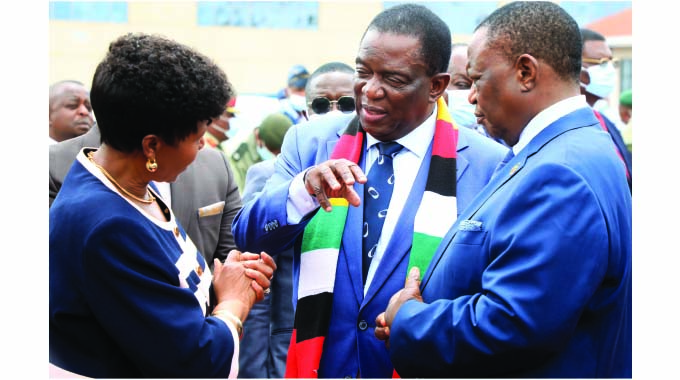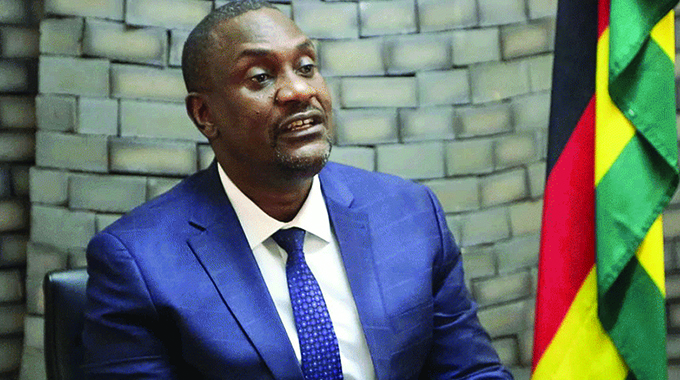US-based businessman invests US$130k in roofing sheets plant

Patrick Chitumba, Midlands Bureau Chief
While some of his age mates are busy chasing after the soft life, fast cars, holidays and expensive clothes, United States-based Mr Tinashe Tsokodayi (32) is busy investing back home.
He has invested US$130 000 into a Q-tiles and inverted box rib (IBR) plant in Gweru.
Mr Tsokodayi who grew up between Harare and Gweru, attended Fletcher High School and Churchill School before moving to Malaysia to study Business Studies, majoring in Information Systems, and finally settling in the USA where he is working.
He said he has always wanted to invest in Zimbabwe to assist the Government in employment creation and developing the country.
His roof sheet manufacturing company, Dultrut Roofing, makes roofing sheets, Q-tiles, and ridges that can be tailored to fit any architectural design.
Q-tile chromadek roofing sheets are premium, high-quality roofing products with all the advantages of being made of steel such as being light in weight and durable while still having the attractive appearance of regular tiles.
Using six high-tech roll forming machines, Dultrut Roofing manufactures roofing sheets that have no standard length or measurement but can be adjusted and cut to any length to suit the constructional preferences and requirements of different individuals and organisations.
In an interview from his base in the USA, the soft-spoken Mr Tsokodayi said he always had a passion to invest back home.
“I moved to the United States in 2013 after I completed my studies in Malaysia and investing back home was always my passion.
After completing my studies, I met someone who challenged me saying if one has studied business, that person must at least own a business,” said Mr Tsokodayi.
He said he met the company’s chief executive officer, Mr Upenyu Kudzai Dube (55) who was assisting his relative with roofing a house in Gweru back in 2017.
“I had visited Mr Dube and he told me that he had taken up a project to roof a nephew’s house and was buying material in Harare. So I came up with the idea of starting a roofing company in Gweru so that people have an alternative source for building materials. I thought it was inconvenient always having to go to Harare for everything,” said Mr Tsokodayi.
“The idea is to be a fully-fledged roofing company in the Midlands area. With decentralisation of various entities taking place, we see ourselves playing a role in supporting the Government, local authorities and schools for example with affordable and quality roofing materials.”
He said he sees value in investing at home rather than chasing after other things such as fast cars and called on fellow Zimbabweans in the diaspora to invest back home.
“We employ 10 youths and plans are to grow and employ more. We have to complement the Government in employment creation by creating employment opportunities for the people. Zimbabweans in the diaspora should invest home in any way they can even with the little they have,” said Mr Tsokodayi.
Mr Dube, a cement technologist who worked for Sino Zimbabwe, said it is now time to move away from the old 12 feet roofing sheets tradition and embrace new and innovative inventions.
“As Dultrut Roofing, we believe in innovation and our duty is to proffer solutions to modern problems, especially in the roofing industry. Currently, there are individuals who are wasting money and resources using standardised 12-feet sheets which are costly as one would require more roofing sheets, timber and nails.
Unlike the old roofing tradition, here at Dultrut, we work hand in hand with the customer specifying what they want in terms of quantity, lengths, effective widths, designs and colours,” said Mr Dube.
“In a nutshell, we offer our clients nothing but the best custom-made roofing sheets designed to fit any unique specific demand.”
Mr Dube said the roof-making machines were wholly automatic, programmable logic controllers operated by a young lady engineer, Petunia Musimhi.
“I have no doubt we’re the best in the province and the country at large. We are the ones who provided roofing sheets for the US$2 million refurbished Kudzanayi Long Distance Bus Terminus in Gweru and Dambudzo Primary School in Zvishavane among other projects,” said Mr Dube who benefited from the Presidential Scholarship and studied cement technology in China.

Money – Image taken from Pixabay
He called on diasporans to assist in the development of the country by investing back home.
“At the same time, people back home must not abuse funds meant to start businesses. We must have a heart for developing our homes, communities and the country at large,” said Mr Dube.
Eng Musimhi said it was time for the construction industry to embrace technological innovations for the smart transformation of the industry.
“We take pride in solving all roofing problems. It’s time to forget the ordinary and embrace the uniqueness and innovation that we offer. Not only do we manufacture roofing sheets from scratch with the highest quality of 0.4mm thickness of plain coil steel sheets, but we also offer toll manufacturing opportunities whereby customers can bring in their steel coils (0.25mm to 0.8mm) for processing at a nominal fee/charge,” she said.
Eng Musimhi explained how their high-tech roll-forming machines manufacture different products ranging from IBR sheets, Q-tile sheets, bull noses, and curved ridges.
“For Q-tile sheets, the roll forming machine bends metal at room temperature using a number of stations where fixed rollers both guide the metal and make the necessary bends. As the strip of metal travels through the roll-forming machine, each set of rollers bends the metal a little more than the previous station of rollers,” she said.
Since its establishment in 2019, Dultrut Roofing has won various accolades including the 2021 Zimbabwe National Chamber of Commerce (ZNCC) innovation award. The roof sheet manufacturer is also a regular participant at the Zimbabwe International Trade Fair (ZITF).

ZITF
Dultrut Roofing works in tandem with President Mnangagwa’s vision of an upper middle-income economy for Zimbabwe by 2030, meaning all the conditions that lead to industrialisation and modernisation have to be fulfilled through innovation.










Comments